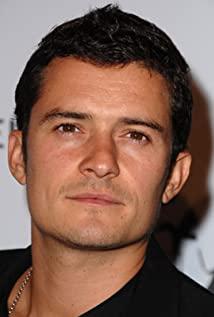The strong contradictions between Christianity and Islam have a long history, but the two sides in the fierce battle in Jerusalem seem to have forgotten the history of the two religions being of the same origin. Both Islam and Christianity have obvious resonance in opposing polytheism and idolatry, and their own teachings are also very similar to Christianity; in the early days of coexistence, the relationship between the two was not so tense, but peaceful coexistence.
By unearthing common sources in beliefs and emphasizing the similarities between the customs and teachings of the two sides, Islam has continuously strengthened its consensus with Christianity in the early days, and even issued relevant policies to protect and respect the characters in the Holy Books - also The saints of Judaism and Christianity. The familiar images of Moses, Noah, Job, and Zacharias appearing in the Qur'an abound in a series of familiar images, which make Christians feel more intimate. Moreover, the Qur'an also shows that the early Muslims did not regard themselves as rivals of Christianity and Judaism, but in the same line: the teachings of Muhammad were previously influenced by Ibrahim (Abraham), Ismael (Ishmael), Revelation of Ishaq (Isaac), Ye Ergubai (Jacob); God gave the same scriptures to Musa (Moses) and Jesus (Jesus). "We do not discriminate against any of them," says the Quran. The fundamental similarity between the two is that they also stated that God gave Moses the scriptures, sent many messengers to spread them, but later chose another prophet to spread the teachings of God. These consensuses were the key for Muslims to gain the support of Judaism and Christianity in the early days. They helped Islam develop in the Middle East and West Asia, enabling Christianity to survive the difficult years of early survival and gradually become a world-class religious giant on an equal footing with Christianity.
But "originally born from the same root" has never been a reason for Western solidarity or unity. The history of the great religious schism in the past proves that believers with high religious zeal are prone to have differences of understanding, and even fight against each other. Over time, with a series of contradictions such as territorial disputes and trade frictions, Christianity and Islam could not avoid the fate of eventually splitting and starting to become hostile to each other. By the age of this film, they were already incompatible natural enemies.
There seem to be three main forces in "Kingdom of Heaven": the Catholic Europe represented by the Knights Templar, the Islamic world represented by Saladin, and the king of Jerusalem and the male protagonist Barian in the middle. The narrowness, extremism and xenophobia of the Knights Templar are all good examples of the narrow religious extremism and blind hostility to the Islamic world in Europe, which was shrouded by the clergy of that era. They insisted on occupying the holy city of Jerusalem and expel all Muslims to complete the absolute Christianization. And Saladin has been waiting for an excuse to start a war, to bring the holy city of Jerusalem back into the hands of Islam, and fight a beautiful holy war for Islam to win religious victory. Under the oppression of two powerful forces, King Baldwin IV of Jerusalem, who advocated coexistence and tolerance, and possessed the general idealism of the "Great Harmony Society", seemed weak, embarrassed and naive.
When two religious worlds fought for a holy city with no spiritual value, Baldwin IV and Balian revealed that the value of Jerusalem is not in the city itself, but in the heart, in the In belief, it exists in people. Jerusalem is located in the most desolate area of the Levant. There is no fertile soil, no minerals, and the value of the port is far less than that of the major ports in the Eastern Mediterranean. There are only endless flying sand and rocks. Its value is endowed by past history, and it is a metaphysical illusory existence. Seizing the stone walls and occupying the land itself was obviously pointless in Balian's view. And the character I admire most in the whole play, Saladin, the founder of the Ayyubid Dynasty, as a hero who has gone down in history, naturally has a vision and mind that is far higher than that of the first-class crusaders. When the Holy City finally fell, Balian asked Saladin, a hundred years ago, the Christian Crusaders killed all the Muslims in Jerusalem and finally won the Holy City. You recaptured the Holy City today, why didn't you kill the Christians to be ashamed?
Saladin stared at Balian, "Because I am Saladin", then turned around and walked out of the tent like a king.
Barian looked at his back and couldn't help but continue to ask, "What is the value of Jerusalem?"
Saladin replied contemptuously, "nothing" as he walked, then stopped and turned to look at Balian, his eyes piercing, his fists clenched, "everything".
The line "nothing, everything" is the finishing touch of the whole film. Taking the Holy City itself has little practical value. But in the age of religious fanaticism, the value of religious victory is above all victory, and "everything" includes not only the religious victory Saladin won for Islam, but also Saladin's practice of the true value of the holy city of Jerusalem. It is not difficult to understand why Saladin did not choose to massacre the city in the end: mercy and fame are one aspect, but I believe that Saladin finally understood that the value of Jerusalem is not in every brick, but in the longevity of people and spirits.
In the centuries that followed, the Islamic world also showed more vitality than the Christian world. It is hard for us to imagine today that when Islam is seriously stigmatized by extremism, this religion once showed the tolerance, openness and fraternity of leaders: Islamic scholars have properly preserved ancient Roman and Greek books, and Diligently study and research, and continue to provide cultural feedback for European scholars. They collected and translated Sanskrit texts and Greek scrolls from India, advancing sciences such as algebra, applied mathematics, trigonometry, and astronomy; Islamic scholar Musa al-Khwarizmi proved in the simplest way The mathematical theory of the existence of this concept; Biruni proposed that the world revolves around the sun and rotates along its axis; the Butishuk family is a Christian family in the Persian region, who wrote a large number of medical works, laid the foundation for the development of Islamic medicine, and even There was once a member of this Christian family who was the caliph's personal physician. In those days, it was not Muslims but Christians who were radical; the open-minded, inquisitive, and generous wise men were in the East, not Europe. Of course, differences within the Islamic religion cannot be ignored, but at least they practiced the idealistic aspirations of Baldwin IV and Jerusalem in the film—tolerance, openness, coexistence and co-prosperity—to a certain extent during the Islamic Golden Age.
This situation lasted for centuries until Europe began to open up new continents and the center of world hegemony gradually moved westward. The traditional Islamic world at dusk and dusk was unable to adapt to the impact of modernity and globalization, and gradually fell into confusion, extremes and parochialism. Today, when the Islamic world is in decline, cast aside and discriminated against by everyone, we might as well look back on the past and affirm their great contributions to human civilization.
View more about Kingdom of Heaven reviews











